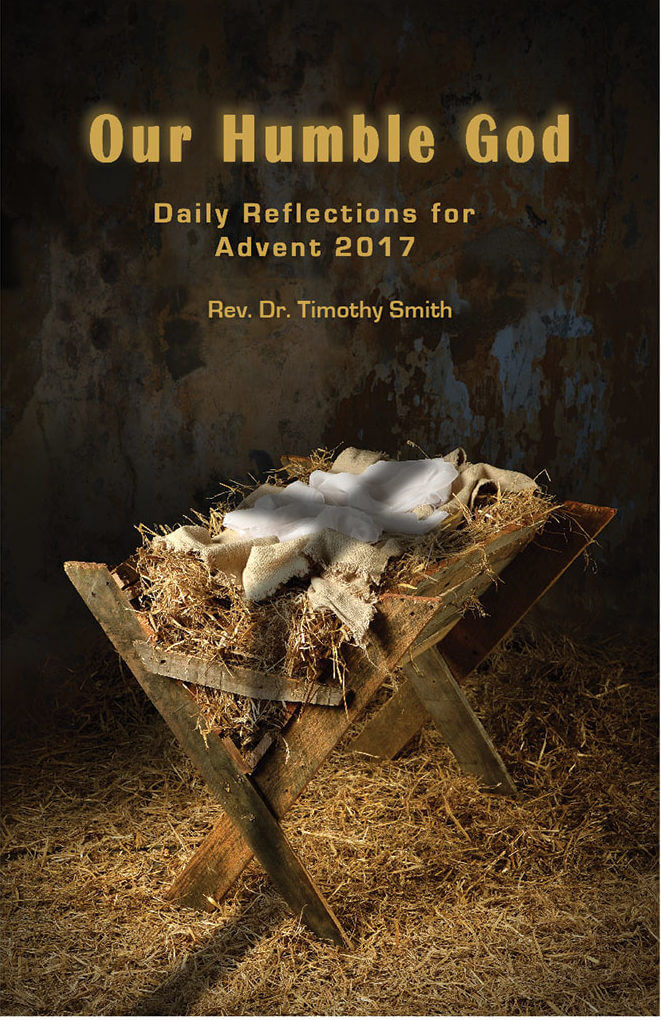PRAY:
Settle yourself into prayer and get ready to reflect on the Word of
God.
READ:
Let the same mind be in you that was in Christ Jesus, who, though
he was in the form of God, did not regard equality with God as
something to be exploited, but emptied himself, taking the form of a
slave, being born in human likeness. And being found in human form,
he humbled himself and became obedient to the point
of death — even death on a cross.
Philippians 2:5-8
Ecce Homo! Behold the Man!
Did Pontius Pilate know what he was saying? Did he have a clue? After questioning Jesus and listening to witnesses, the fifth Roman Prefect of Judea declared: “Behold the man!” (John 19:5).
This momentous pronouncement by Pilate gathers up all of the longings of humanity. Since the time of Adam and Eve (Genesis 4:1) people had hoped for and prayed for the one Man who would save them from sin and death. It was in Bethlehem’s manger that the Man was born in whom the whole of humanity is bound up. He was conceived by the Holy Spirit, born of the Virgin Mary, and came to represent all of us. He is the one Man who will live and die for us, be raised and enthroned for us, so we might live and reign with Him. (See Ephesians 2:3-6) The Babe of Bethlehem is the uniting of God and humanity. God binds Himself to us in Him. “There is one God, and there is one mediator between God and man, the man Christ Jesus” (1 Timothy 2:5).
Elsewhere the apostle Paul speaks of Christ as the Man, the one representative Man who will undo all that Adam has done. It is the Good News, “As all die in Adam, so all will be made alive in Christ” (1 Corinthians 15:22). So we proclaim, “God was in Christ reconciling the world to himself” (2 Corinthians 5:19). Karl Barth wrote concerning the one Man, God’s Man, Christ Jesus:
At the very point where we refuse and fail, offending and provoking God, making ourselves impossible before Him and in that way missing our identity, treading under foot our dignity, forfeiting our right, losing our salvation and hopelessly compromising our creaturely being – at that very point God Himself intervenes as man.” (Church Dogmatics, IV/1)
In the Old Testament culture there was “the man between” (Hebrew: ish habbenayim), often translated as “the champion”. This man between acted as the representative in what was called “single combat”, stepping into the fight between two lines of battle. According to the custom of the day the whole battle would be decided right then and there, man-to-man, winnertake-all.
So in the Old Testament we see the young shepherd David stepping into the fight, to act as the man between, the champion, to battle Goliath (1 Samuel 17:4, 23) in a winner-take-all conflict. David was the champion. He was the man between!
The New Testament introduces Jesus as the Son of David, the one sent to act as the Man between, our one representative in the battle against sin and death. And Jesus won the battle. Paul sets forth Christ’s victory, our victory, like this: “For just as by the one man’s disobedience [Adam] the many were made sinners, so by the one man’s obedience [Jesus] the many will be made righteous” (Romans 5:19). Jesus is our Champion, the Man!
So in today’s text we see that God emptied Himself, being “born in human likeness”. He came down to be that Man between, the Champion. “He, the Creator, does not scorn to become a creature, a man like us, in order that as such He may bear and do what must be borne and done for our salvation.” (Karl Barth, Church Dogmatics, IV, 1)
Amen and amen! Ecce Homo! Behold the Man Christ Jesus! “O come, let us adore Him, O come, let us adore Him, Christ the Lord.”
REFLECT:
- In the battle between Jesus and the powers of sin and death, what does it mean to you that Jesus is your Champion?
- The apostle Paul told the Philippian Christians, “For to me, living is Christ” (Philippians 1:21). In the light of today’s reading, what do Paul’s words mean to you?
“At last in the midst of our fallen humanity, within and in spite
of our estrangement from him, God comes in his love and
binds us to himself forever. God and man meet in Jesus Christ.”
Thomas Torrance, Incarnation


